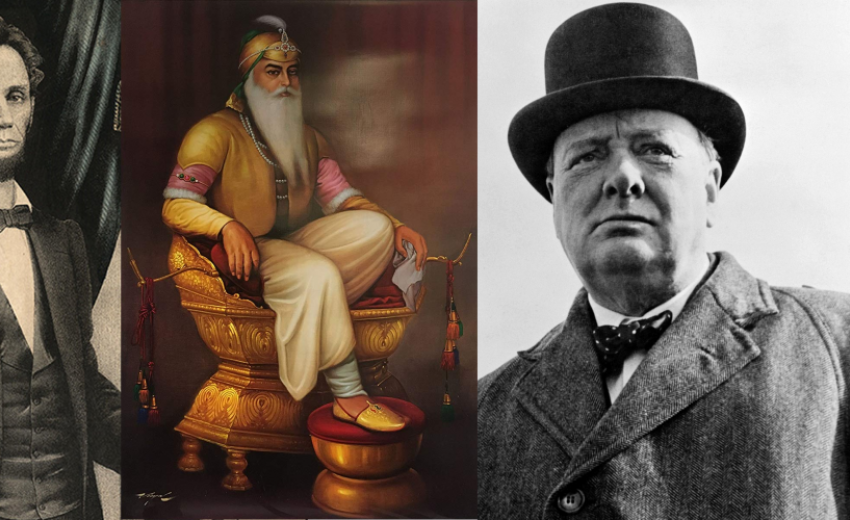A Sikh warrior famous for his extensive conquests, religious tolerance, and appetite for firewater, Maharaja Ranjeet Singh, was chosen as the greatest leader in the history of the world. More than 5,000 readers of BBC World Histories magazine participated in a poll, and Maharajah Ranjit Singh, the founder of the Sikh Empire, received 38 percent of the vote, which was enough to defeat other nominees such as Winston Churchill and Abraham Lincoln.
His name was nominated by the historian Matthew Lockwood. Lockwood argued that while Maharaja Ranjit Singh, also known as the Sher-e-Punjab or "Lion of Punjab", was a conqueror, who created a ‘modern empire of toleration’ that unfolded after his death when Britishers took over his former territories. Sharing his views about the same, the academic from the University of Alabama said, “ Though certainly, an imperialist, Ranjit Singh represented a different, more enlightened, more inclusive model of state-building, and a much-needed path”
All about the BBC poll
BBC World Histories Magazine polled its readers to choose the greatest leader from a list of names proposed by numerous notable historians. Readers were encouraged to select a leader who "executed power and had a good impact on humanity, and to investigate their accomplishments and legacy." Maharaja Ranjit Singh, who received more than 38% of the vote, was described by nominating historian Matthew Lockwood as a modernizing and uniting power whose rule "represented a golden age for Punjab and northwest India."
After him, AmÃlcar Cabral, an African freedom warrior who is credited for organizing more than a million Guineans to liberate themselves from Portuguese occupation, took second place. Now, the third position was given to British Prime Minister Winston Churchill. He got 7% of the total votes for his massive contributions to Britain during the world war. Abraham Lincoln, the president of the United States, was voted fourth.
Who was Maharaja Ranjit Singh?
During the years 1802-1933, Maharaja Ranjit Singh founded and ruled the Sikh kingdom in northwest India. As a result of the Mughal empire's fall, the area was torn by conflicts between Afghan tribes until Maharaja Ranjit Singh is credited with founding a new empire.
According to historian Matthew Lockwood, when Maharaja Ranjit Singh began his rule, the province was politically unstable, economically depressed, and religiously fractured due to Afghan invasions, protracted infighting among Punjab's several misls (sovereign kingdoms), and the threat of British expansion. All this changed with the rise of Singh, the Lion of Punjab’.
Matthew Lockwood recognized Maharaja Ranjit Singh's initiatives to modernize the Sikh Khalsa Army, adopt western innovations while preserving traditional forms and institutions, bring the splintered misls together, stabilize the border with Afghanistan, and reach a win-win detente with the British East India Company.
The Golden Temple at Amritsar and other Sikh gurudwaras were restored by Maharaja Ranjit Singh. He is also credited with fostering a climate of religious tolerance for all communities.
During the reign of Ranjit Singh, there were numerous positive changes, including modernization, investments in infrastructure, and overall prosperity. His army and government were composed of Sikhs, Hindus, Muslims, and Europeans. In addition to other notable gurudwaras, such as the Harmandir Sahib in Amritsar, he helped finance the renovation of Takht Sri Patna Sahib in Bihar and Hazur Sahib Nanded in Maharashtra, leaving behind a period of Sikh cultural and artistic renaissance.
*Based on news from India Today Web Desk New Delhi/ Mar 5, 2020
